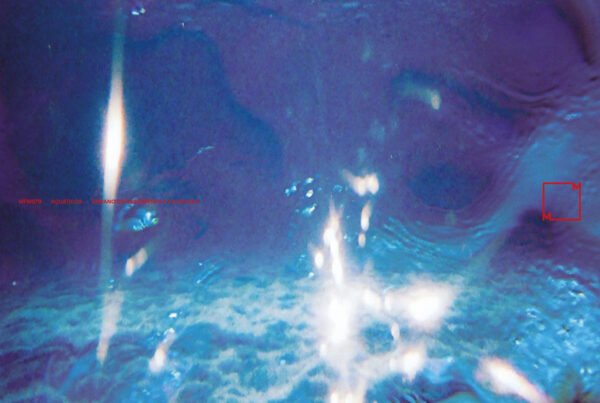Ne Obliviscaris embark on yet another musical crusade that’ll leave lasting impressions on the musical world to come.
Release date: March 24, 2023 | Season of Mist | Facebook | Bandcamp | Website | Purchase/Stream
Ne Obliviscaris is a name that we’re likely all familiar with at this point, as they’re one of the finest progressive death metal bands to have done the damn thing. Finally returning after what seems like an eternity since their previous record, Exul marks their triumphant return with an album very worthy of the discography that it resides in. Any new music from Ne Obliviscaris is always a welcome treat, but thankfully Exul is more than just ‘new music’, making it very much worth the wait.
While Portal of I is definitely the classic record that put them on the map, it feels like a collection of stellar singles and not necessarily a full-album journey. The fact that it is seven hulking songs makes it exhausting to get through sometimes, and that is where Citadel improved upon by achieving a perfect balance between lengthy, adventurous tracks and a shorter runtime with genius flow that is much more digestible as a whole. Urn continued this full-album experience with multi-track suites, but that record overall felt just a tad underwhelming compared to everything they’ve put out previously. Now that Exul comes into the picture, it corrects the slight missteps felt on Urn and rivals Citadel for the ultimate Ne Obliviscaris experience that exudes nothing but elegance.
Now that the existence of this record has become a reality rather than a myth, you may be wondering, what took them so long? Long story short, the band and the members within were put through a myriad of trials and tribulations that were beyond their control, ultimately delaying the completion of the record time after time with nothing to be done about it but wait. On the bright side, once the record was eventually ‘done’ and the band was sitting on it, the wait allowed them to go back and add or rewrite certain parts in a way that ultimately enhanced the music. One such example is the violin solo that appears in the end of “Graal”, as what we hear on this track wasn’t how it originally panned out. If you’re curious what Exul means on a deeper level, Xen sheds some light on the matter:
‘Coincidentally, it matched the experience of most people during the pandemic and the Russian invasion of Ukraine. I think everyone at some point has felt at odds with the world around them, felt alone, cast out, or misunderstood. Exul felt right to use in a broader sense and as a lone word, for we each have our own history and a story of exile. Overall, there’s a darker core to this album, perhaps more ominous than previous releases. However abstract the lyrics are, they involve some form of unwanted departure — all journeys into torment, passion, longing and even despair. They touch on the process of physical and psychological destruction that comes from that sense or reality of being exiled, whether forced from one’s land, ostracized from a community, shunned by a religion, or even simply being treated differently for being who they are.‘
Instrumentally, this is Ne Obliviscaris at their best, as each instrumental component is given plenty of space to shine but also settle back and allow the others take the forefront, although they’ve admittedly done this from the start. There is a much stronger emphasis on the usage of the violin/viola throughout Exul, especially notable on “Misericorde II – Anatomy of Quiescence” and “Suspyre”, allowing for even more romantic emotion to bleed from the music into our feeble souls. Rhythm-wise, Martino Garattoni settled into the band like it was destiny, with his juicy fingerstyle bass providing so much body and warmth to these songs that is as clear as day and an absolute joy to follow along to. Everyone it as the top of their game and it only adds to the thrill.
Mild spoiler alert for watchers of Attack on Titan, so skip this coming paragraph if you’re not caught up with the part 1 of the season finale of the final season (yes, I meant to describe it as such; if you know, you know). In order to convey the overwhelming emotion captured in the final moments of Exul, I felt that a comparison to this monumental show was absolutely necessary.
Not long after the five minute-mark in “Graal”, we get the single most powerful few minutes of music heard on Exul, perhaps even in their discography as a whole; the suspense is absolutely immense. As for why I brought up Attack on Titan, the climax to “Graal” makes me feel as I am helplessly watching the rumbling reduce everything and everyone to rubble and ash around me. As the palpable tension builds and builds, this looming sense of urgent, inescapable doom courses through your veins and arteries; there is no hope. I am left frozen like a deer in the headlights, rather a human in front of a hulking, colossal titan, as I stand in complete and utter disbelief that I am about to be crushed indiscriminately. Just as the track ends, we meet our fate and the world as we know it is done for.
“Graal” is a masterclass track, gorgeously capturing frantic desperation in its lead up to the closing track. If there is such thing as an afterlife, “Anhedonia” is what greets you wherever you believe we go. The combination of “Graal” and “Anhedonia” closes the record out beautifully, in a way that is highly reminiscent to the end of both the “Painters of the Tempest” and “Devour Me, Colossus” suites from the legendary Citadel. The soothing piano and haunting violin screeches, alongside Charles’ buttery vocalizations makes for an emotionally gripping, yet liberating final movement in this record that aides in the spiritual transition that may or may not occur after our inevitable deaths. Musically, this is as hedonic as it gets; don’t let the title of this track fool you.

While Exul doesn’t stray much from the ‘NeO formula’, there is no arguing the fact that this is a major refinement of their respected sound. This album takes the very best features from that of Portal of I and Citadel and capitalizes on them to deliver a memorable and digestible experience that leaves you eager to spin it again immediately without any fatigue. Although I am not overly fond of the artwork, I can totally see how the musical themes heard on Exul connect to that of the art, and that is the goal after all. If it works, it works, and it most certainly does despite my slight reluctance to enjoy the art for what it is but that can’t be helped as of right now.
For those hesitant that it won’t meet its understandably high expectations after all this time, you can rest assured that Exul is well worth the wait. As their band name would suggest, Exul is yet another musical offering that you won’t be able to forget. It is an amalgam of the most favorable aspects from their previous records used as a foundation to springboard into this expansive and breathtaking journey. Exul stands alongside Citadel as the definitive Ne Obliviscaris musical escapade.






